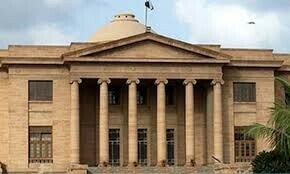KARACHI, April 18: The British-era judicial system, which remained in place even after the country’s independence, is largely responsible for the plight of litigants.
This was one the many views expressed by Sindh Assembly Speaker Nisar Khuhro while delivering a keynote address at the inaugural session of a three-day international conference titled “Access to justice: criminal justice system” on Thursday night.
The conference was jointly organised by the Hamdard School of Law, APWA Legal Aid Centre, Women Prisoners Welfare Society and Committee for Welfare of Women Prisoners.
Mr Khuhro added that now that a “true, representative government of the people” was in office, efforts would be made to bring about improvement in the country’s outmoded laws, which had been formulated by a colonial power many centuries ago.
The conference, which will conclude on Saturday evening, is being attended by a large number of lawyers from across the country. Justice Tilakawardane Sheerani of Sri Lanka, Dr Amrita Singh, Dr Ritu Diwan and Jatin Desai from India are also taking part in the conference.
Mr Khuhro, who was chief guest, said when investigations and trials took a long time to conclude in urban areas, the sufferings of rural people and the length of delays in the provision of justice to them could be easily gauged, considering that they had to travel long distances to reach courts.
The military rulers, who always assumed that they were above the law, had never bothered to provide inexpensive and speedy justice to people, he said, observing that justice delayed was justice denied. However, he added, true public representatives were in power now and therefore a political will was there to provide relief to the masses. “Soon people will start seeing a discernible improvement in all walks of life,” he said.
Shortage of judges
In his welcome address, retired Justice Nasir Aslam Zahid said that the condition of prisons, police and the judiciary – three basic pillars of the edifice of justice – that existed here during British rule and afterwards had deteriorated over the years.
He said there were around 900 magistrates, the first tier of judiciary that deals with almost 70 per cent of cases, for approximately 160 million people whereas there were around 30,000 magistrates for a population of just 55 million in the United Kingdom. The workload due to shortage of judges not only caused delay in dispensation of justice but also affected their quality of work, he added.
The judge said police had very limited facilities in the field of forensics, which could provide scientific evidence and help solving criminal cases. The conviction rate, he said, was just 10 to 15 per cent, which spoke volumes about the quality of investigations and the prosecution. For instance, he said, if there were 100 rapes, 90 per cent would not be reported due to the social repercussions for the victims, while among the rest of the 10 cases the culprits involved in only one case would be finally convicted, given the 10 per cent conviction rate.
The world’s oldest jail
Sindh Prisons IG Yamin Khan said more than 6,000 prisoners were languishing in city jails, which had a total capacity for 1,500 detainees. Over 80 per cent of these prisoners were undertrial suspects, he added.
He said that the relief allowed under the probation and parole laws was not being extended to the inmates as only three to four parole/ probation officers were working in Sindh whereas the actual requirement was between 300 and 400 such officials.
Referring to the deteriorating condition of prisons, he said that Dadu Jail, constructed over two centuries ago in 1774, was probably one of the oldest in the world. There was another one located in Philadelphia, US, but that was constructed in 1794, he added.
The inspector-general said psychological courses had been initiated in prisons where the attitude of many inmates, who had undergone such trainings, really changed. He underlined the need for initiating such awareness exercises in society, particularly in educational institutes, so that people were less inclined to commit crimes. The IG also talked about vocational training initiated in various prisons.
Although the past governments had set up numerous commissions from time to time to review and improve the judicial system, Prof Akmal Wasim said that a very few of the recommendations made by these bodies had been incorporated. Hence the system remained almost similar to what it had been during colonial rule. The condition could even be worse as development could not keep pace with the population growth over the years, he added.
Ironically, he said, the criminals convicted and sent to jail were fed, lodged and taken care of at state expense, while the system did not provide adequate compensation to the victim. It was the weakness of criminal jurisprudence that the victims of crimes did not attract due attention, and women being a weaker section of society suffered more.
He said prosecution was based on police investigation, which remained weak as police no more enjoyed public confidence. He explained that people did not come forward to give evidence to police and the benefit of weak investigations went to culprits.
Yasmin Dastur, Khursheed Hadi and others also spoke at the conference.
The conference that took notice of the delays caused to aggrieved parties in dispensation of justice started over an hour and a half behind schedule due to the late arrival of the audience, speakers and guests.















































Dear visitor, the comments section is undergoing an overhaul and will return soon.